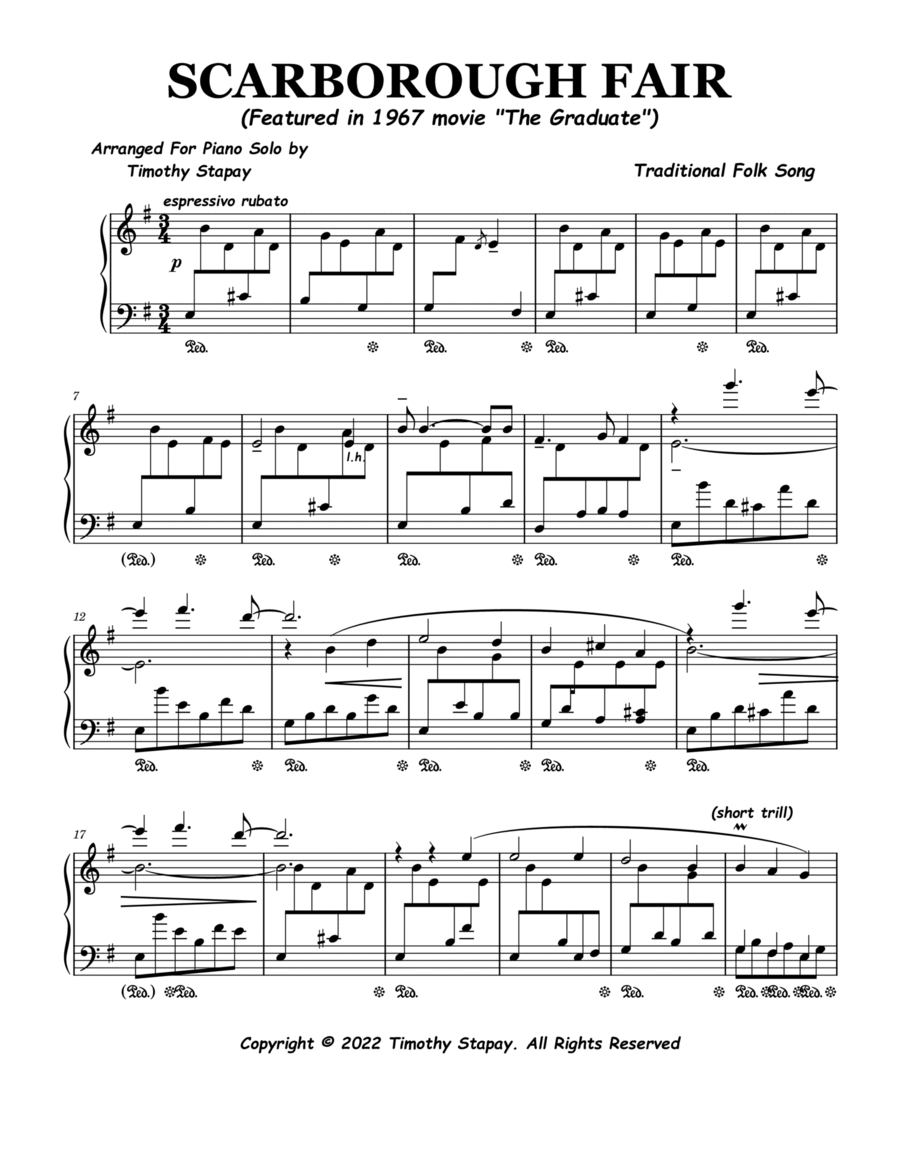Piano Solo - Level 5 - Digital Download SKU: A0.847962 By Simon And Garfunkel. By Traditional English Ballad. Arranged by Timothy Stapay. Baroque,Contest,Festival,Film/TV,Folk,Traditional. Score. 6 pages. Timothy Stapay #454662. Published by Timothy Stapay (A0.847962). Scarborough Fair is a traditional English ballad. A famous version was recorded by Simon and Garfunkel. The lyrics of Scarborough Fair appear to have something in common with a Scottish ballad titled The Elfin Knight (Child Ballad #2, collected by Francis James Child, which has been traced as far back as 1670. In this ballad, an elf threatens to abduct a young woman to be his lover unless she can perform an impossible task (For thou must shape a sark to me / Without any cut or heme, quoth he); she responds with a list of tasks that he must first perform (I have an aiker of good ley-land / Which lyeth low by yon sea-strand). Dozens of versions existed by the end of the 18th century. A number of older versions refer to locations other than Scarborough Fair, including Wittingham Fair, Cape Ann, twixt Berwik and Lyne, etc. Many versions do not mention a place name and are often generically titled (The Lovers' Tasks, My Father Gave Me an Acre of Land. The references to the traditional English fair, Scarborough Fair and the refrain parsley, sage, rosemary, and thyme date to 19th-century versions, and the refrain may have been borrowed from the ballad Riddles Wisely Expounded, which has a similar plot. O, where are you going? To Scarborough fair, Savoury sage, rosemary, and thyme; Remember me to a lass who lives there, For once she was a true love of mine. And tell her to make me a cambric shirt, Savoury sage, rosemary, and thyme, Without any seam or needlework, And then she shall be a true love of mine. And tell her to wash it in yonder dry well, Savoury sage, rosemary, and thyme, Where no water sprung, nor a drop of rain fell, And then she shall be a true love of mine..
